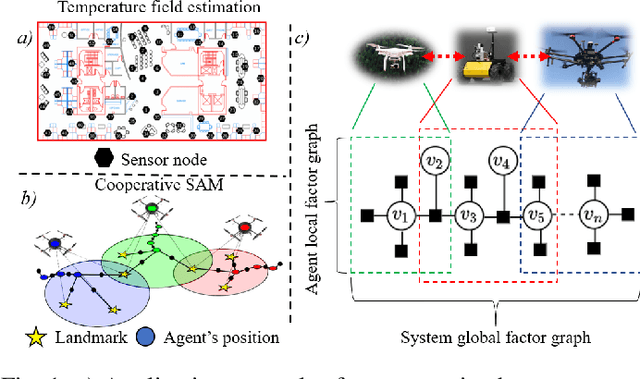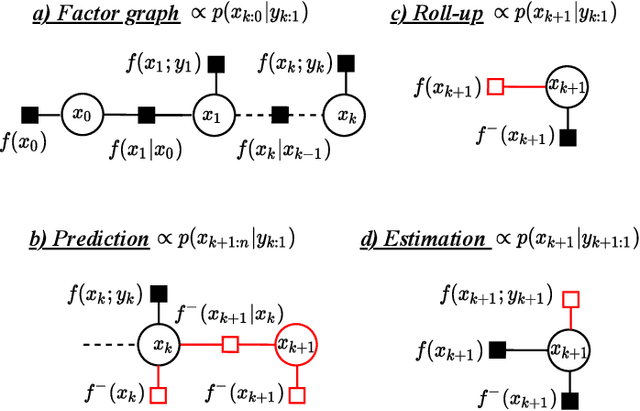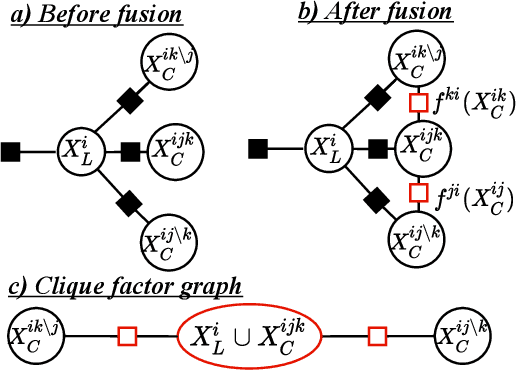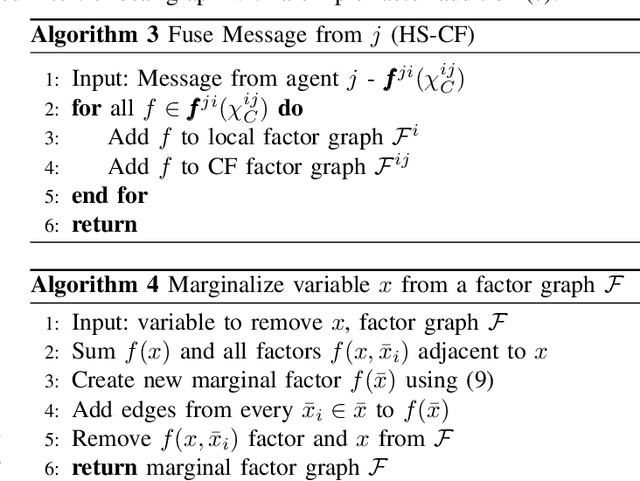Factor Graphs for Heterogeneous Bayesian Decentralized Data Fusion
Paper and Code
Jun 24, 2021



This paper explores the use of factor graphs as an inference and analysis tool for Bayesian peer-to-peer decentralized data fusion. We propose a framework by which agents can each use local factor graphs to represent relevant partitions of a complex global joint probability distribution, thus allowing them to avoid reasoning over the entirety of a more complex model and saving communication as well as computation cost. This allows heterogeneous multi-robot systems to cooperate on a variety of real world, task oriented missions, where scalability and modularity are key. To develop the initial theory and analyze the limits of this approach, we focus our attention on static linear Gaussian systems in tree-structured networks and use Channel Filters (also represented by factor graphs) to explicitly track common information. We discuss how this representation can be used to describe various multi-robot applications and to design and analyze new heterogeneous data fusion algorithms. We validate our method in simulations of a multi-agent multi-target tracking and cooperative multi-agent mapping problems, and discuss the computation and communication gains of this approach.
 Add to Chrome
Add to Chrome Add to Firefox
Add to Firefox Add to Edge
Add to Edge